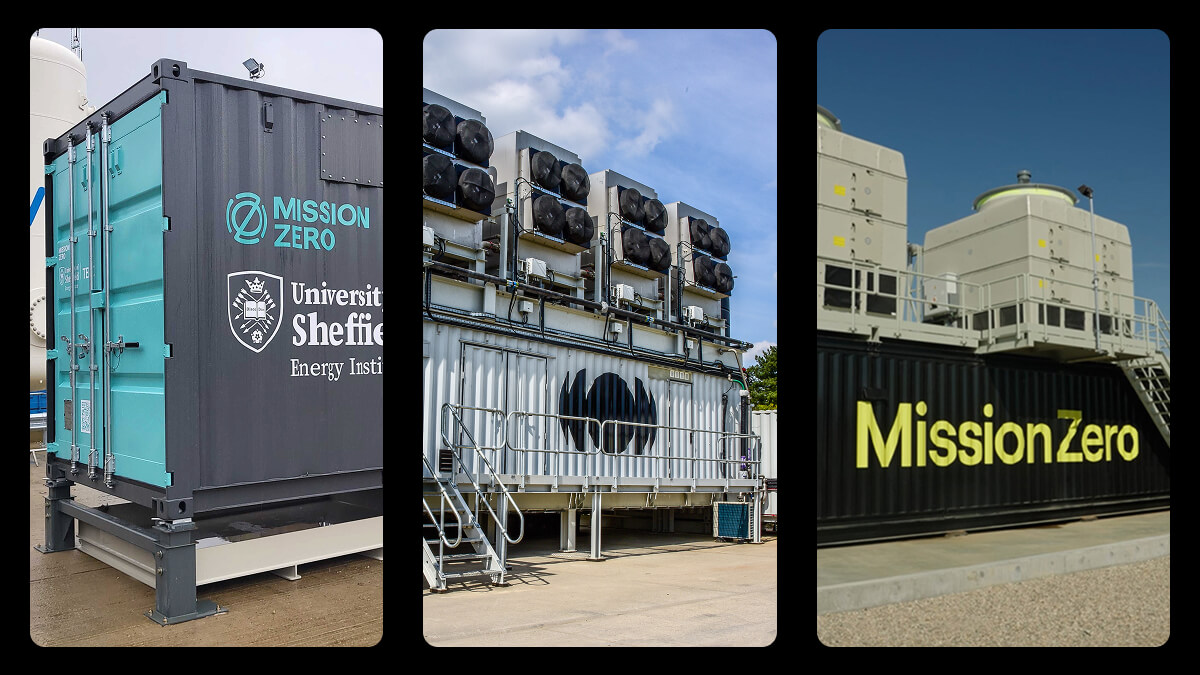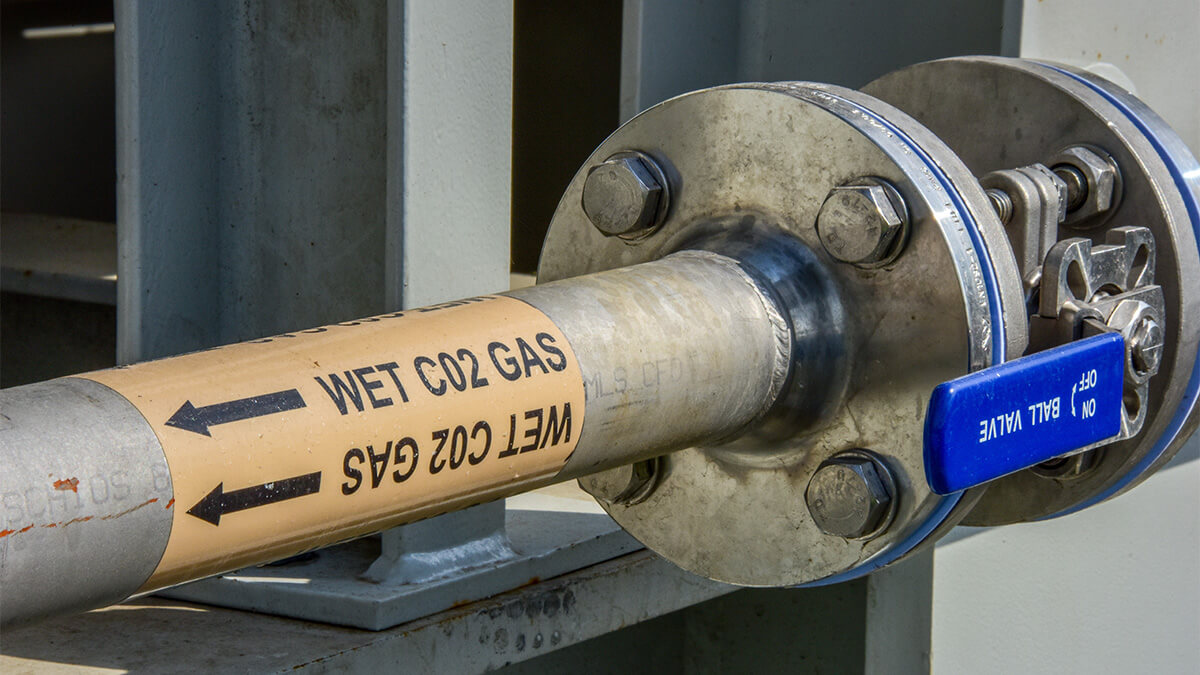Today we turned on our first direct air capture (DAC) system in Sheffield, UK which was delivered seven months after first signing the contract. One of only two commercially-financed DAC systems operational in the world, the plant was sold to the University of Sheffield’s Translational Energy Research Centre (TERC), a world-leading zero-carbon energy research institution.
The remotely-operated electrochemical plant will recover 50 tonnes of high-purity CO₂ from the atmosphere using water and solar electricity generated on TERC’s site. TERC will use this CO₂ in a first-of-a-kind UK project to validate the end-to-end production of sustainable aviation fuel (SAF) made from atmospheric carbon. The goal is to certify this fuel so that it can be rapidly scaled to decarbonise UK aviation.
Our first modular DAC unit is craned into place on TERC’s site.
The deployment is an important step for scaling DAC, recognised by the Intergovernmental Panel on Climate Change (IPCC) as a critical technology for humanity to meet its 1.5°C obligations. It also serves to reinforce the UK’s position as an international climate leader accelerating critical solutions to help deliver Net Zero.

Decarbonising UK aviation
DAC is widely seen as the only technology capable of providing a scalable source of sustainable carbon to help the UK government meet its mandate for 10% SAF jet fuel by 2030. TERC’s DAC-to-jet fuel project will provide project financiers and developers with the analysis required to scale a UK SAF ecosystem. By proving DAC’s readiness for industrial deployment, it will also pave the way for more fossil-dependent industries to rapidly decarbonise.

Scaling DAC at the speed of crisis
We believe the best way to scale DAC for maximum positive climate impact is to create the world’s most versatile solution — one that can integrate easily into any process, in any location, at any scale to drive decarbonisation and permanent carbon removal. In 2024, we will start putting two further fully-funded DAC plants on the ground, advancing the development of carbon-negative building materials and the permanent removal via mineralisation, respectively.

“We’re thrilled to be delivering our first ever DAC plant on home soil with the University of Sheffield. DAC is a multi-use technology able to drive deep industrial decarbonisation and permanent carbon removal. Through pioneering partnership, we’re already realising that potential.” — Dr Nicholas Chadwick, Mission Zero CEO

For us, today is the culmination of three years of intense creativity, innovation, and commitment. In three years, we’ve moved a novel climate technology from a back-of-envelope drawing to a real, live plant. It's an energising, validating message — for our team and visionary partners around the world — to keep being ambitious for our climate.


“This installation is hugely exciting for us, and for the world, as we discover more about the potential for decarbonised industrial processes and air transport using novel DAC technology. We’re excited to work closely with MZT on this project and other world-leading activities.”— Professor Mohamed Pourkashanian, Managing Director of TERC

.webp)


